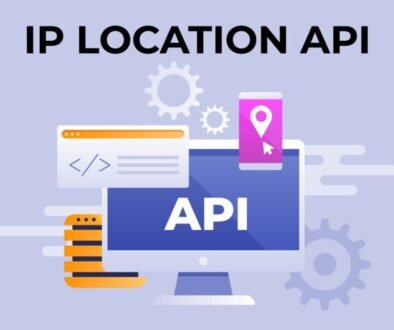Emerging Trends in Cloud-Based Construction Accounting for the Modern Contractor
With the advent of cloud-based technology, the construction industry has witnessed a significant transformation in its accounting practices. Modern contractors increasingly adopt cloud-based construction accounting software to streamline their financial operations, enhance collaboration, and gain a competitive edge. In this blog, we will delve into the emerging trends in cloud-based construction accounting, exploring how this innovative technology is reshaping the landscape for contractors. Additionally, we will introduce you to Foundation Software, a leading provider of construction software solutions, including cloud-based construction accounting software.
1. Real-time Financial Visibility
One of the most transformative trends cloud-based technology brings is its unparalleled real-time financial visibility. Unlike traditional accounting systems, which often rely on batch processing, cloud-based construction accounting offers contractors instantaneous access to their financial data. This real-time visibility is akin to having a well-lit path through a financial landscape, allowing contractors to swiftly and confidently make informed decisions. Whether it involves adjusting budgets, allocating resources, or identifying potential areas for cost savings, the immediacy of real-time financial data empowers contractors to navigate financial challenges with agility and precision.
2. Enhanced Mobility and Collaboration
Projects are often distributed across diverse geographical locations. The rise of cloud-based construction accounting software has ushered in an era of enhanced mobility and collaboration, addressing the need for seamless connectivity among dispersed teams. This innovative technology is engineered to be accessible virtually anywhere via an internet connection, providing a passport to productivity for contractors and their teams. Whether they find themselves in the office, on a bustling job site, or working remotely from afar, cloud-based construction accounting fosters a culture of efficient communication and effortless data sharing. This heightened collaboration translates into improved project coordination, faster decision-making, and the successful execution of construction endeavors.
3. Data Security and Compliance
In the construction industry, where the exchange of sensitive financial information is a routine affair, data security is paramount. This is where cloud-based construction accounting solutions rise to the occasion. They are fortresses of data security, constructed upon a bedrock of robust measures, including cutting-edge data encryption, stringent access controls, and systematic, fail-safe data backups. Contractors can rest assured that their financial data is cocooned within a protective shell, adhering to industry regulations meticulously. This mitigates the risk of data breaches and shields contractors from the ominous specter of penalties and regulatory entanglements.
4. Integration with Other Construction Software
The interplay of cloud-based construction accounting software with other construction management tools constitutes another pivotal trend in the industry. Contractors are no longer confined to siloed software solutions; they can seamlessly integrate their accounting software with various complementary tools, including project management, scheduling, and warehouse inventory management software. This harmonious integration dismantles data silos, eliminates the drudgery of manual data entry, and orchestrates a symphony where financial information flows effortlessly between diverse systems. The result? Streamlined operations and a well-orchestrated, harmonious construction management ecosystem.
5. Scalability
Construction is a dynamic field, marked by periodic surges in project volume and fluctuations in workforce demands. Cloud-based construction accounting software is architected to be inherently scalable, effortlessly adapting to the shifting tides of contractor needs. Be it a small, mid-sized, or large construction company, this software possesses the chameleon-like ability to accommodate evolving demands without necessitating disruptive and resource-draining software overhauls. It’s a blueprint for future-proofing operations, ensuring that as contractors grow or downsize, their software adapts in tandem.
6. Advanced Reporting and Analytics
Cloud-based construction accounting solutions usher in an era of advanced reporting and analytics capabilities. Contractors can generate comprehensive, intricate reports that delve deep into financial performance, job costing, profitability, and beyond. These reports are not mere templates but canvases waiting to be personalized, allowing contractors to tailor them to their specifications. The advanced analytics inherent to this software empower contractors to unearth trends, forecast future expenses, and base their decisions on a bedrock of empirical, data-driven insights. It’s akin to having a financial crystal ball that demystifies the future.
7. Paperless Transactions
Cloud-based construction accounting is driving a wave of paperless transactions across the industry. Digital transactions, electronic invoices, and e-signatures are no longer novelties but the norm. This ripples across as a time-saving endeavor and unfurls as a banner of environmental sustainability. Reduced paper usage translates into reduced administrative overhead, shorter processing times, and, perhaps most importantly, a conscious effort to reduce the construction industry’s carbon footprint.
8. Disaster Recovery and Business Continuity
In an uncertain world where unforeseen circumstances lurk around every corner, disaster recovery, and business continuity are no longer afterthoughts but pivotal components of cloud-based construction accounting software. In the event of data loss triggered by hardware failures, natural disasters, or other unforeseen calamities, contractors can rest assured that their financial data is not lost to the sands of time. Secure cloud backups stand as vigilant sentinels, ready to swiftly restore data and ensure business continuity, minimizing downtime and safeguarding contractors against the fallout of unexpected disruptions.
Conclusion
The construction industry is undergoing a digital transformation, and cloud-based construction accounting is at the forefront of this change. Contractors who embrace these emerging trends are positioning themselves for greater efficiency, collaboration, and success. Real-time financial visibility, enhanced mobility and collaboration, robust data security, integration capabilities, scalability, advanced reporting, paperless transactions, and disaster recovery are reshaping how contractors manage their finances.
For comprehensive construction software solutions, including cutting-edge cloud-based construction accounting software, consider Foundation Software. Their expertise in construction software extends to a wide range of tools designed to empower modern contractors. Visit their website to learn how Foundation Software can benefit your construction business.



